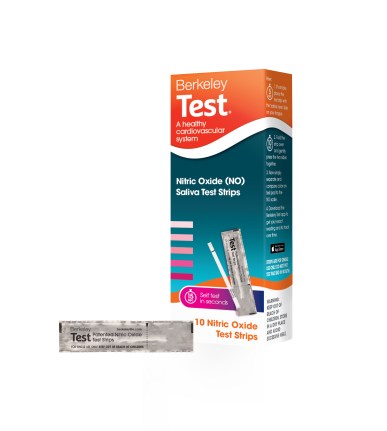 I recently had the pleasure of being invited to join a virtual roundtable with renowned cardiologist, Dr. James Rippe, founder and director of the Rippe Lifestyle Institute. Dr. Rippe is a graduate of Harvard College and Harvard Medical School with post-graduate training at Massachusetts General Hospital. You can read more about his accolades here.
I recently had the pleasure of being invited to join a virtual roundtable with renowned cardiologist, Dr. James Rippe, founder and director of the Rippe Lifestyle Institute. Dr. Rippe is a graduate of Harvard College and Harvard Medical School with post-graduate training at Massachusetts General Hospital. You can read more about his accolades here.
This roundtable was to discuss NO (nitric oxide) and its beneficial effects on the heart, according to Dr. Rippe’s extensive research. Below are some bullet points that I took from the roundtable when Dr. Rippe was talking about medical benefits and overall information of NO. You will need some basic medical background to understand the bullets below, as I took the notes as I would have in college but have added in some layman’s terms.
NO:
- It has a short 1/2 life
- Multiple mechanisms exist in the body to produce it
- Most importantly, it **DILATES ARTERIES**
-
- This includes heart and coronary arteries
- It works in the endothelium of the coronary arteries
- It is generated from the AA (Amino Acid), Arginine
- It is generated from Nitrates that we eat
- Nitrates are converted to Nitrites that are then converted to NO
- Patients with hypertension will have increased BP (blood pressure) due to decreased NO
- Aging causes decreased NO
- It is generated in people who are physically active, ex. Michael Phelps (Olympic Swimmer)
- It plays a signaling role in the GI (gastrointestinal) tract
- It has an immune function
- It has an anti-platelet function
Eating certain vegetables can increase your Nitrates, thereby increasing NO. Below is a list of vegetables high in Nitrates.

Dr. Rippe is an advocate of the Berkeley Life supplement, which is available at select locations nation-wide and comes with test strips to indicate the levels of NO in the body.


Dr. Rippe said that 2 pills/day is equal to 1/4 lbs of spinach (or similar green leafy vegetables like kale and even beetroot).
I submitted a couple of questions during the session – one of them being whether or not this supplement would interact with all of the cardiac medicines I already take that are prescribed by my doctor (since I am a heart attack survivor). He said that he is not aware of any cardiac meds that interact with NO. However, I would still be most comfortable, as with any supplement, to get this cleared by my cardiologist before taking it to make sure there were no interactions.
My other question was that with all of my research after my heart attack on what to eat and not eat, I’d read that processed meats with Nitrates and Nitrites as preservatives should be avoided because they were bad for the heart, so I asked about this because it obviously contradicts what he is saying. He said that Nitrates and Nitrites in processed meats are the same but in higher concentrations. Yes, they are used as preservatives. So, don’t go around consuming large quantities of them, but it is ok to eat them in moderation.
So, all in all, this was an eye-opener for me about Nitrates and Nitrites since I had always heard the opposite. It is very interesting research and something that I definitely want to read/learn more about.
If any of you have tried this supplement, please comment below if you’re comfortable sharing your experience with it. I would be curious to know how it is working for people and if they can tell a difference.
Happy researching!
Kimby
